With the row over PayPoint margins raging again, chief executive Dominic Taylor argues that it does pay. Simon Mowbray reports
It’s probably fair to assume that the news pages of The Grocer have not made the most pleasant of reading for PayPoint chief executive Dominic Taylor in recent weeks.
Moans over margins paid by the utility payment network, which has more than 12,000 terminals nationwide, are back on the agenda following a series of high-profile comments from influential retailers.
Industry elder statesman Jim Botterill, chairman of Botterills Convenience Stores, got the ball rolling by openly criticising PayPoint over commission terms on a range of new payment services, hurtling the row towards the scale it reached two years ago when the likes of Costcutter, Spar and Londis joined in a scuffle over what were deemed to be poor returns for retailers.
The issue was catapulted even further forward last month when one of PayPoint’s award-winning retailers - Ushi Vithani, owner of CTN store The Front Page in Thamesmead, South London - threatened to chuck out his terminal in disgust over poor margins. The overall level of dissatisfaction was indicated two weeks ago when The Grocer’s reader panel survey of independent retailers found that 71% of those with PayPoint were unhappy with the share of the profits they were receiving from transactions.
The only chink of light for PayPoint on this battleground in recent weeks has been the appointment of Mike Igoe, currently brand development manager at Sainsbury-owned Jacksons Stores, as the company’s first retail director. Set to be charged with the unenviable task of wooing dissatisfied retailers, Igoe will join PayPoint on August 1.
Against this background, it would perhaps be reasonable to expect Taylor to be looking a little battle-weary as he orchestrates the company’s next moves from its base in Welwyn Garden City. However, although Taylor admits to being “frustrated” by some of the comments levelled against his company in recent weeks, he stoically adds that he has “been here before”. As he sits down to set out his company’s side of the story, Taylor is quick to point out what he believes PayPoint has brought to retailers’ businesses since it started trading in 1996, including higher footfall, extra profits and a share in a growing success story. PayPoint turned in its first operating profit last year - £6.1m on a turnover that was up by 32% to £66.4m.
Payments - which now include everything from bus tickets to mobile phone top ups on top of the service’s bread and butter utility payments - soared to £2.27bn, adds Taylor, as 204.5 million transactions were processed.
Most importantly, he points out, is the figure that shows average transaction value at £11.10. At present, 1% of utility payments are given out to the retailer but capped at 13p, which has given rise to one of the biggest collective moans from retailers. However, Taylor points out that 1% of the average transaction value weighs in at just over 11p and he claims that the 13p cap, therefore, doesn’t really come into play at all.
Taylor is unwilling to answer how many transactions go over the capped rate and instead counters with another statistic about how the more profitable mobile phone top ups, which currently account for around one in three PayPoint transactions (66 million to be precise), rack up the average commission per transaction for retailers to 18.4p.
The rights and wrongs of this thinking are certain to be argued about long and hard but Taylor suggests some retailers are missing the point by focusing on short-term gains. For example, he says that one of PayPoint’s key targets is to drive business, particularly on utility payments, out of the Post Office and into its retailers’ tills.
“In order to do that, you have to have a competitive proposition,” insists Taylor. “Once you have got that business migrated out of the Post Office then you are in a better position to a have a discussion (with the utility companies) over margins.
“Retailers at the independent level are not strategic, whereas we have a strategic story to sell. We do that well with our multiple retailers and we need to communicate this point more often to smaller independents.”
Plans are also afoot, says Taylor, to improve the overall offer for retailers. New products such as a payment solution for the Congestion Charge in London and savings schemes have already come on line. Hi-tech kiosks, which would ease the burden on busy cash tills, are also being looked at, while the company is pushing its ATMs, of which 650 have already been installed, as a further money-spinning opportunity.
All of this, argues Taylor, will drive footfall, although you could forgive retailers for thinking it’s a case of ‘damned if you do, damned if you don’t’ on this issue.
After all, a major complaint from retailers is that what are perceived to be relatively unprofitable PayPoint transactions tie up tills at critical times and put off customers who want to make other purchases.
Taylor counters with research, which was commissioned last year, that showed PayPoint customers also spent £4.22 on other goods while they visited a store for a transaction. Of more than 1,000 PayPoint customers surveyed at 60 stores, the survey by ESA Market Research also found 95% thought it was important for a store to have the terminal, while 79% claimed that they either always or often bought something else while paying a bill. Bread, milk and cigarettes were the most popular items.
Nevertheless, Taylor acknowledges that speed of transaction is still an issue and so second generation terminals, which are Chip & PIN compliant, have been rolling out to stores since last year and are currently cutting transaction times from a previous high of 25 seconds to as little as 18 seconds.
A trial of 800 new terminals using ISDN lines instead of dial-up connections has shown that the wait can be cut to just 10 seconds, while tapping into broadband would slash it to five seconds, although Taylor admits one issue would be sorting out who should pay for the connection.
In the meantime, Taylor adds that PayPoint still has £14.1m of accumulated losses following the company’s first seven years of unprofitable trading. Part of the plan to wipe that off the slate includes adding some 3,000 more retailers to the network over the next year. The company currently has more than 7,000 prospective recruits who have applied.
Again, Taylor says that choosing which stores should be allowed to join the network is far from straightforward and the company has a team mapping out PayPoint’s UK landscape in order to find the most suitable sites to drive extra business without cannibalising existing PayPoint footfall.
Murmurings in the trade suggest some retailers would be glad to offload a proportion of their PayPoint traffic on to other outlets, but Taylor suggests this may be a false moan for some retailers.
“We do understand that queues can be a problem for some retailers. We try to get retailers up to a minimum footfall on PayPoint and we also monitor the maximums as well. But we find that if we offer to open another retailer or terminal nearby, then they don’t want it.
“One solution can be for a retailer to take another terminal if they have room.”
It’s probably fair to assume that the news pages of The Grocer have not made the most pleasant of reading for PayPoint chief executive Dominic Taylor in recent weeks.
Moans over margins paid by the utility payment network, which has more than 12,000 terminals nationwide, are back on the agenda following a series of high-profile comments from influential retailers.
Industry elder statesman Jim Botterill, chairman of Botterills Convenience Stores, got the ball rolling by openly criticising PayPoint over commission terms on a range of new payment services, hurtling the row towards the scale it reached two years ago when the likes of Costcutter, Spar and Londis joined in a scuffle over what were deemed to be poor returns for retailers.
The issue was catapulted even further forward last month when one of PayPoint’s award-winning retailers - Ushi Vithani, owner of CTN store The Front Page in Thamesmead, South London - threatened to chuck out his terminal in disgust over poor margins. The overall level of dissatisfaction was indicated two weeks ago when The Grocer’s reader panel survey of independent retailers found that 71% of those with PayPoint were unhappy with the share of the profits they were receiving from transactions.
The only chink of light for PayPoint on this battleground in recent weeks has been the appointment of Mike Igoe, currently brand development manager at Sainsbury-owned Jacksons Stores, as the company’s first retail director. Set to be charged with the unenviable task of wooing dissatisfied retailers, Igoe will join PayPoint on August 1.
Against this background, it would perhaps be reasonable to expect Taylor to be looking a little battle-weary as he orchestrates the company’s next moves from its base in Welwyn Garden City. However, although Taylor admits to being “frustrated” by some of the comments levelled against his company in recent weeks, he stoically adds that he has “been here before”. As he sits down to set out his company’s side of the story, Taylor is quick to point out what he believes PayPoint has brought to retailers’ businesses since it started trading in 1996, including higher footfall, extra profits and a share in a growing success story. PayPoint turned in its first operating profit last year - £6.1m on a turnover that was up by 32% to £66.4m.
Payments - which now include everything from bus tickets to mobile phone top ups on top of the service’s bread and butter utility payments - soared to £2.27bn, adds Taylor, as 204.5 million transactions were processed.
Most importantly, he points out, is the figure that shows average transaction value at £11.10. At present, 1% of utility payments are given out to the retailer but capped at 13p, which has given rise to one of the biggest collective moans from retailers. However, Taylor points out that 1% of the average transaction value weighs in at just over 11p and he claims that the 13p cap, therefore, doesn’t really come into play at all.
Taylor is unwilling to answer how many transactions go over the capped rate and instead counters with another statistic about how the more profitable mobile phone top ups, which currently account for around one in three PayPoint transactions (66 million to be precise), rack up the average commission per transaction for retailers to 18.4p.
The rights and wrongs of this thinking are certain to be argued about long and hard but Taylor suggests some retailers are missing the point by focusing on short-term gains. For example, he says that one of PayPoint’s key targets is to drive business, particularly on utility payments, out of the Post Office and into its retailers’ tills.
“In order to do that, you have to have a competitive proposition,” insists Taylor. “Once you have got that business migrated out of the Post Office then you are in a better position to a have a discussion (with the utility companies) over margins.
“Retailers at the independent level are not strategic, whereas we have a strategic story to sell. We do that well with our multiple retailers and we need to communicate this point more often to smaller independents.”
Plans are also afoot, says Taylor, to improve the overall offer for retailers. New products such as a payment solution for the Congestion Charge in London and savings schemes have already come on line. Hi-tech kiosks, which would ease the burden on busy cash tills, are also being looked at, while the company is pushing its ATMs, of which 650 have already been installed, as a further money-spinning opportunity.
All of this, argues Taylor, will drive footfall, although you could forgive retailers for thinking it’s a case of ‘damned if you do, damned if you don’t’ on this issue.
After all, a major complaint from retailers is that what are perceived to be relatively unprofitable PayPoint transactions tie up tills at critical times and put off customers who want to make other purchases.
Taylor counters with research, which was commissioned last year, that showed PayPoint customers also spent £4.22 on other goods while they visited a store for a transaction. Of more than 1,000 PayPoint customers surveyed at 60 stores, the survey by ESA Market Research also found 95% thought it was important for a store to have the terminal, while 79% claimed that they either always or often bought something else while paying a bill. Bread, milk and cigarettes were the most popular items.
Nevertheless, Taylor acknowledges that speed of transaction is still an issue and so second generation terminals, which are Chip & PIN compliant, have been rolling out to stores since last year and are currently cutting transaction times from a previous high of 25 seconds to as little as 18 seconds.
A trial of 800 new terminals using ISDN lines instead of dial-up connections has shown that the wait can be cut to just 10 seconds, while tapping into broadband would slash it to five seconds, although Taylor admits one issue would be sorting out who should pay for the connection.
In the meantime, Taylor adds that PayPoint still has £14.1m of accumulated losses following the company’s first seven years of unprofitable trading. Part of the plan to wipe that off the slate includes adding some 3,000 more retailers to the network over the next year. The company currently has more than 7,000 prospective recruits who have applied.
Again, Taylor says that choosing which stores should be allowed to join the network is far from straightforward and the company has a team mapping out PayPoint’s UK landscape in order to find the most suitable sites to drive extra business without cannibalising existing PayPoint footfall.
Murmurings in the trade suggest some retailers would be glad to offload a proportion of their PayPoint traffic on to other outlets, but Taylor suggests this may be a false moan for some retailers.
“We do understand that queues can be a problem for some retailers. We try to get retailers up to a minimum footfall on PayPoint and we also monitor the maximums as well. But we find that if we offer to open another retailer or terminal nearby, then they don’t want it.
“One solution can be for a retailer to take another terminal if they have room.”







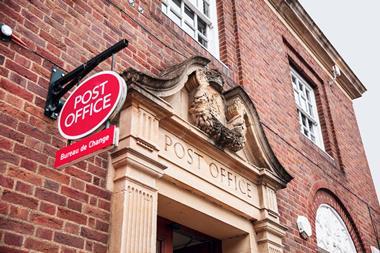
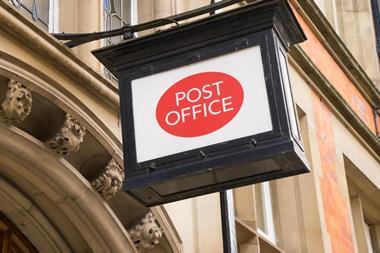

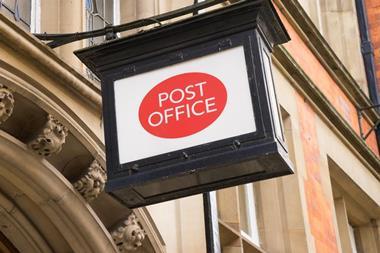
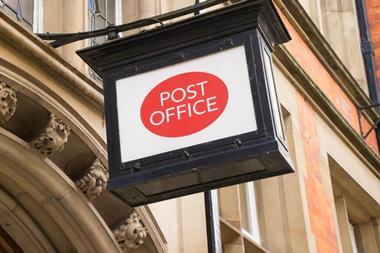
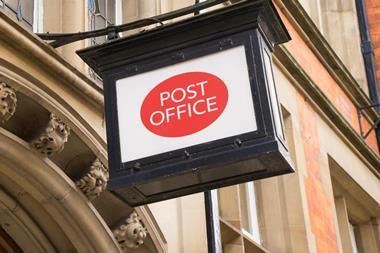


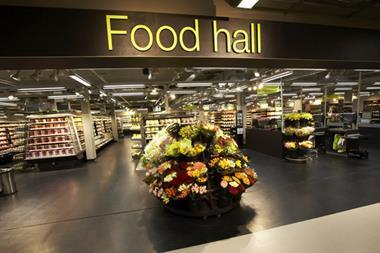



No comments yet